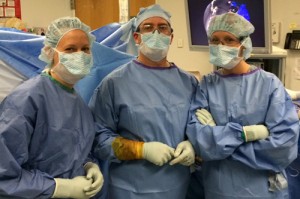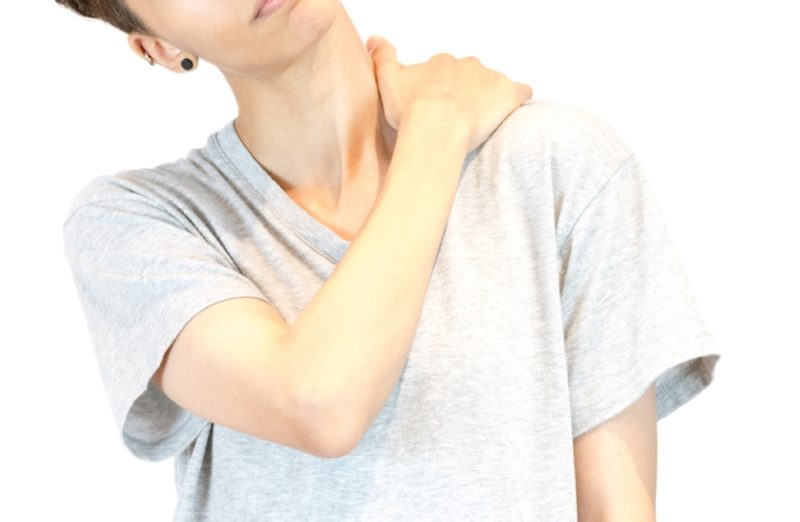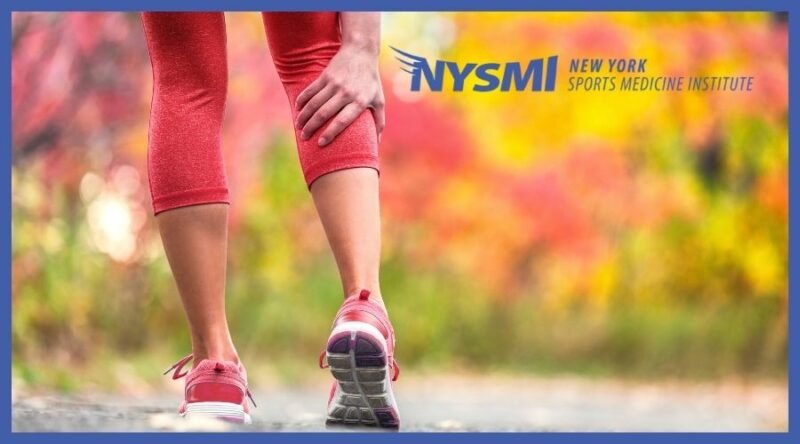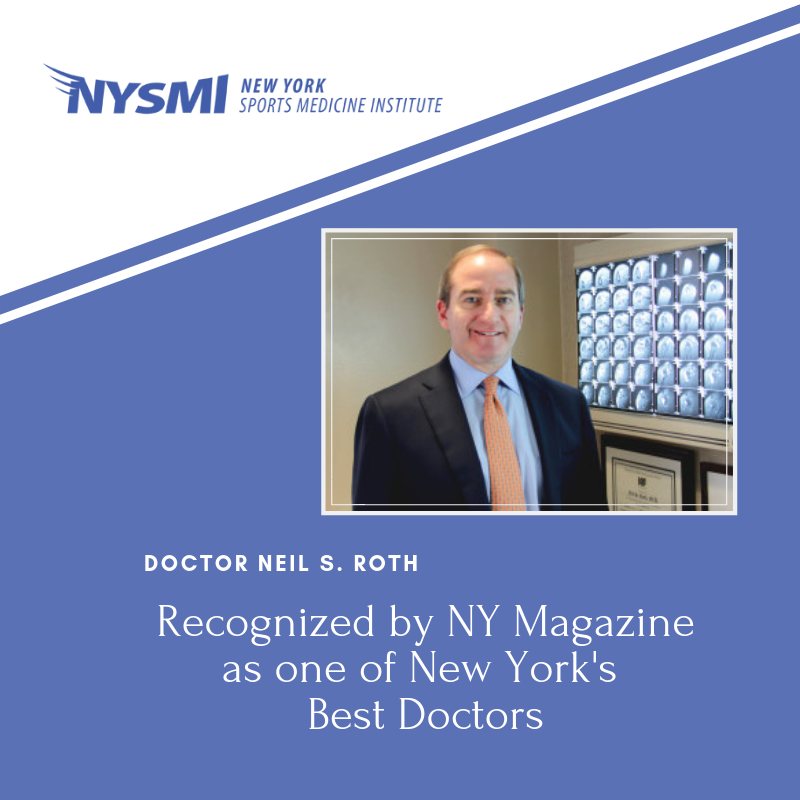
Orthopedic Surgeon in Manhattan

New York Sports Medicine Institute | Orthopedics is committed to excellence by providing the highest quality of orthopedic and sports medicine care. Along with the treatment of immediate or chronic problems, NYSMI strives to integrate the doctrine of prevention in all treatment plans as a way to alleviate future difficulties. With the help of our orthopedic surgeon in Manhattan, we’re able to provide quality care for our patients.
NYSMI serves patients 3 years old and up, with treatment and surgery for orthopedic and sports injuries, to alleviate shoulder, knee, hip, and various other pains, from the mild to the severe.
Meet Our Orthopedic Surgeon in Manhattan – Dr. Neil S. Roth
What Conditions Can an Orthopedic Surgeon in Manhattan Treat?
New York Sports Medicine Institute provides a wide range of highly specialized treatments to properly evaluate and treat sports-related and chronic conditions affecting the shoulder, knee, hip, elbow, hand, wrist, foot, and ankle. Sports injuries are often caused by trauma suffered during competition and repetitive or overuse wear and tear. Chronic conditions may include arthritis, age-related deterioration, or any number of factors related to use or associated health issues.
When surgery is required, NYSMI offers minimally invasive arthroscopic surgery for a number of conditions related to injury of the shoulder, knee, hip, elbow, foot, ankle, hand, and wrist. Our orthopedic surgeons are also highly regarded for providing hip, knee, and shoulder total joint replacement.
Physical therapy is frequently prescribed for the treatment of sports injuries and chronic injuries that may not require orthopedic surgery. Physical therapy is also prescribed to ensure optimal healing and training following some orthopedic surgery procedures. For a number of patients, conducting physical therapy at the New York Sports Medicine Institute provides convenience and comfort – a visit to one location serves multiple needs and provides comprehensive care to keep you in the game.
Click to learn more about specific services and ailments
What Does an Orthopedic Surgeon do?

Are you curious to know what a highly skilled orthopedic surgeon is able to do? This particular medical profession is often considered one of the most cutting-edge and in-demand fields in the industry. Not only can an orthopedic surgeon treat various injuries and traumas with both surgical and non-surgical techniques, but some even specialize in certain areas of the body. As the founder of New York Sports Medicine Institute, Dr. Neil S. Roth is a highly acclaimed board-certified orthopedic surgeon who specializes in the area of comprehensive sports medicine, shoulder, elbow, and knee surgery. He has been recognized by New York Magazine as one of New York’s best doctors, as well as Castle Connolly’s top doctors in the New York Metro area. Amongst the list of prestigious doctors, Dr. Roth takes great pride in the acknowledgment of his entire team’s high level of expertise. If you have been looking for a highly distinguished orthopedic surgeon in Manhattan, contact us at New York Sports Medicine Institute. We offer extensive sports medicine treatment, orthopedic surgery, concussion care, and physical therapy at both our Westchester and New York City locations. We recommend you learn more about the various concentrations of orthopedic surgery and how it can help you.
Orthopedic Concentrations
Orthopedic surgery can be used to help treat patients with a wide variety of injuries or other related traumas. Some of the most common conditions orthopedic surgery can help treat may include the following:
- Shoulder Injuries such as:
- Rotator cuff tears.
- Tendonitis and bursitis.
- Arthritis of the shoulder.
- Frozen shoulder.
- Shoulder instability.
- Fractures.
- General shoulder pain.
- Knee injuries such as:
- ACL, MCL, and PCL injuries.
- Meniscus Tear.
- Osteochondritis Dissecans (OCD) of the knee.
- Articular cartilage injury.
- Autologous chondrocyte implantation (ACI).
- Total and partial knee replacement.
- Arthritis of the knee.
- General knee pain.
- Elbow conditions such as:
- Tennis elbow.
- Ligament construction of the elbow.
- Elbow dislocation and instability.
- Osteochondritis of the elbow.
- Hip injuries such as:
- Fractures and tears.
- Hip impingement (FAI).
- Snapping Hip.
- Arthritis of the hip.
- Hip replacement.
- Foot & Ankle conditions such as:
- Sprains, strains, and fractures of the foot and ankle.
- Arthritis of the foot and ankle.
- Tendonitis of the foot and ankle.
- Hand & Wrist complications such as:
- Fractures of the wrist or fingers.
- Tendonitis of the wrist.
- Ganglion cysts.
- Arthritis of the hand and wrist.
- Carpal tunnel syndrome.
The Difference at New York Sports Medicine Institute
At NYSMI, our team is highly specialized in performing orthopedic surgery and treating the above-listed injuries and conditions. Through our expertise, we strive to help each and every one of our patients restore normal and pain-free function back to the affected area. If you have been searching for a skilled orthopedic surgeon in Manhattan, contact us at New York Sports Medicine Institute. We want to provide you with the best care possible to get you back to feeling your best!
Orthopedic Surgeon Expertise
Since people tend to visit an orthopedic surgeon when their condition has gotten to a more severe or painful stage, orthopedic surgeons primarily focus on proper diagnosis and treatment for patients.
Diagnosis & Treatment
The various diagnostic tools orthopedic surgeons commonly use involve physical examinations, imaging studies, and lab tests. Treatment options can include both surgical and non-surgical procedures such as:
- Arthroscopic surgery – a surgical procedure using a tiny camera to see inside of a joint, used in different areas of the body.
- Open shoulder instability surgery.
- Rotator cuff surgery.
- Physical therapy treatment.
- Total or partial replacement of the shoulder, hip, or knee.
Depending on your particular injury or severity of your condition, different types of treatment plans may be recommended. It’s important to schedule an appointment with an orthopedic surgeon as soon as an injury takes place or a condition develops.
The Requirements
In order to become a board-certified orthopedic surgeon, there are several different accreditations you must first achieve. You must complete a four-year undergraduate program specifically comprised of one year of biology, one year of physics, and two years of chemistry. Then, followed by an additional four years of medical school and a post-graduate residency program. The residency program focuses solely on the specialty of orthopedic surgery. This allows prospective surgeons to get hands-on, practical exposure to the various surgical techniques and technologies used in this particular medical concentration.
The founder of New York Sports Medicine Institute, Dr. Neil S. Roth, is both a board-certified orthopedic surgeon and sports medicine doctor. He received his undergraduate degree from Duke University School of Medicine in Durham, North Carolina. He went on to complete his postgraduate studies and residency program at Columbia-Presbyterian Medical Center. Amongst the list of accreditations, Dr. Roth has also completed a fellowship in Sports Medicine at the world-renowned Kerlan-Jobe Orthopedic Clinic where he served as an assistant team physician for the Los Angeles Lakers, Dodgers, Kings and Angels, the Anaheim Ducks, and the University of Southern California. His high level of expertise and wide-set knowledge on the subject of sports medicine has set him apart as a skilled orthopedic surgeon.
Injury Specifics – Torn Rotator Cuff

Rotator cuff injuries are extremely common, but can often go undiagnosed. Some patients may not even be fully aware of where the rotator cuff is located precisely. A rotator cuff is essentially a group of muscles and tendons that keeps your upper arm bone firmly in its shoulder socket. Individuals who have had rotator cuff injuries can attest to how painful and debilitating it can be, even when you’re only doing everyday activities. In order to know if you do in fact have a rotator cuff injury, it’s vital to understand whether or not you’re at risk, what the common causes are, and the types of symptoms you should be monitoring. If you’ve been dealing with discomfort and pain in your rotator cuff and have been searching for an orthopedic surgeon in Manhattan, contact us at New York Sports Medicine Institute. We offer both orthopedic care and physical therapy treatments for our patients to help them get back on track. Continue reading if you want to learn more about rotator cuff injuries and how you can detect whether you have one or not.
Who is at Risk?
Being that the rotator cuff is responsible for keeping your arm bone stabilized in the shoulder socket, individuals who perform repetitive motions with their arms can be at risk of developing a rotator cuff injury. Some examples include carpenters, painters, and those who are lifting objects repeatedly. Those who play sports such as baseball, tennis, and wrestling, which involve constant repetitive arm motions, are also at risk for a rotator cuff injury to occur. As patients age, their risk for developing this type of injury also increases, making older individuals much more susceptible to rotator cuff injuries.
Common Causes
Some of the common causes of rotator cuff injuries can vary, depending on the severity of your particular injury. Rotator cuff injuries are typically broken down into three distinct categories, such as:
- Tendonitis – a condition that can occur if the rotator cuff is being overused, causing inflammation in the tendons.
- Bursitis – caused by inflammation of the bursa, or fluid-filled sacs in between the rotator cuff and the arm bone.
- Rotator cuff strains or tears – this can be caused by an acute injury or overuse of the rotator cuff over time. This occurs when the tendons that connect muscles to bones becomes overstretched or even torn. This type of rotator cuff injury typically causes immediate and severe pain.
Symptoms of a Rotator Cuff Injury
It’s important to note that not all rotator cuff injuries lead to the development of pain. Some rotator cuff injuries can be the result of certain conditions that build up over a period of time. That being said, some common types of symptoms associated with rotator cuff injuries may include the following:
- The weakening of the shoulder.
- Tenderness or pain when trying to reach overhead.
- Pain in the shoulder, which is heightened at night.
- Difficulty sleeping on the afflicted shoulder.
- Loss of full range of motion in the shoulder and/or arm.
- Deep to dull aches in the shoulder and/or arm.
- Unable to carry out normal activities due to pain or discomfort.
If you have been experiencing any of these symptoms for a duration lasting longer than a week, it’s crucial you visit an orthopedic surgeon.
Diagnosing a Rotator Cuff Injury
A doctor will be able to determine and diagnose your rotator cuff injury by conducting a physical examination, analyzing previous medical history, and utilizing various imaging scans. These scans can include:
- X-rays.
- Magnetic resonance imaging (MRI).
- Ultrasounds.
Your orthopedic surgeon will be looking to see what your arms range of motion is like if there are any tears present, and whether other conditions such as arthritis, can be ruled out.
Treatment Options
If you are diagnosed with a rotator cuff injury, there are several different treatment plans available. These options can range from home remedies to surgery depending on the extent of your injury.
Non-invasive treatment methods have been reported to help improve symptoms by nearly 50%. These various treatments consist of:
- Applying cold or hot packs to reduce swelling and inflammation.
- Resting the affected shoulder and wearing a sling for added support.
- Exercising to help restore and improve your arms range of motion.
- Over-the-counter anti-inflammatory medications, such as ibuprofen.
- Physical therapy.
Other forms of treatment, such as surgery and injections, are typically recommended for those who have a much more severe rotator cuff injury. Steroid injections into the shoulder joint can provide temporary relief, but should not be used frequently as they can weaken your tendons. When it comes to surgery, there are various different kinds that can be performed depending on the type of rotator cuff injury you may have developed.
How to Prevent Future Rotator Cuff Injuries
Preventing rotator cuff injuries from happening in the future is possible. If you have had a previous rotator cuff injury, it’s important to consult with your physical therapist so they can provide you with daily stretches and exercises to help strengthen your shoulder. If you have been looking for an orthopedic surgeon in Manhattan, visit us at New York Sports Medicine Institute. Not only do we offer superlative orthopedic care, but we also have highly-experienced physical therapists who work one-on-one with our patients to ensure they stay injury-free. Other prevention methods can consist of taking a break from playing strenuous sports or avoiding repetitive motions involving the arm and shoulder.
Contact Us at New York Sports Medicine Institute
If you or someone you know is in need of an orthopedic surgeon in Manhattan, or in the Westchester area, contact us at New York Sports Medicine Institute. Dr. Neil S. Roth heads a highly experienced team of orthopedic specialists who are all well versed in the area of orthopedic surgery and sports medicine. New York Sports Medicine Institute has been treating patients with orthopedic injuries and conditions for nearly 16 years. Schedule an appointment with us and receive the proper treatment you need for your medical injuries!
HOW CAN I TREAT MY FROZEN SHOULDER?

Unfortunately, people who suffer from Frozen Shoulder often experience a lot of pain. Frozen Shoulder can cause stiffness and soreness in the joint and can be very frustrating. It can even be difficult to perform normal day to day tasks. Many people struggle to find ways to cope with this condition because there is a small amount of awareness surrounding it and resources are limited. Luckily, there are some things that you can do to treat your Frozen Shoulder! At New York Sports Medicine Institute, our orthopedic surgeon in Manhattan wants to see your pain be relieved which is why we offer you resources and treatment!
What is Frozen Shoulder?
Frozen Shoulder is a condition that causes pain and stiffness in the shoulder joint. This happens when the shoulder capsule becomes too thick which makes moving difficult. This can cause scar tissue to form as well as limit the liquid that normally lubricates this area. Luckily, there are some ways to treat this condition!
How Do You Know If You Have Frozen Shoulder?
There are a few warning signs that someone may have Frozen Shoulder. Pain and stiffness are a huge sign of this condition but knowing the stages of Frozen Shoulder may help you diagnose it! The first stage of Frozen Shoulder usually includes pain in your shoulder that can worsen at night. This stage can last for a few months and limits your range of motion. The second stage consists of more stiffness than pain and makes it very difficult to do normal activities. The final stage is when you slowly begin to develop a larger range of motion and your shoulder goes back to normal. This is also the longest stage that can last up to two years.
What Causes Frozen Shoulder?

Although it is unclear why Frozen Shoulder develops, some groups are more at risk of developing the condition. People of the age of 40-60 are most likely to get Frozen Shoulder. It is also more common in women and people who have suffered from other medical conditions such as a stroke. Diabetes and heart conditions also increase your chance of developing Frozen Shoulder. Although a lot of these risk factors are unavoidable, you can do a few things to decrease your risk as well. Staying active and moving is a very important way to prevent Frozen Shoulder. Stiffness is less likely to occur if your shoulder is used to moving and holds a lot of strength. Staying active can also decrease your risk of many other conditions and even some conditions that are linked to Frozen Shoulder!
How to Treat Frozen Shoulder
The pain of a Frozen Shoulder can be unbearable for some which means you can’t just sit and endure the pain. There are a few ways you can limit this pain. They include:
- Don’t wear a sling! Frozen shoulder limits your ability to move and makes your shoulder stiff. A sling enhances these feelings by holding your arm in one place.
- Use your arm! Just like wearing a sling will encourage stiffness, moving around and forcing your arm to do activities can reduce the stiffness.
- Try out some range of motion exercises. Exercises like these encourage you to test your limits and slowly work up to a higher range of motion.
- Try shoulder exercises. By including shoulder exercises in your daily routine, you can strengthen your rotator cuff and reduce pain!
- A corticosteroid injection from your doctor may reduce pain.
- Physical therapy is a great way to focus on exercises that can help you specifically and reduce stiffness and pain.
- Surgery may be an option in some cases to reverse your Frozen Shoulder.
Reaching out to an orthopedic surgeon in Manhattan may be beneficial and help relieve your pain. New York Sports Medicine Institute is here for you!
Contact Our Orthopedic Surgeon in Manhattan
We understand that it can be difficult to deal with a condition like Frozen Shoulder. You feel constant pain and discomfort all while struggling to do normal activities. We know the inconvenience of this condition which is why we want to help! New York Sports Medicine Institute works every day to learn more about Frozen Shoulder and what we can do to reduce your pain. We offer many resources and programs to help you! Contact our Orthopedic Surgeon in Manhattan today!
How Much Pain Is Ok For Baseball Pitchers?

If you’re a baseball player, strenuous physical activity has a massive impact on your body. According to WebMD, more than ¾ of baseball pitchers suffer pitching injuries before their All-Star Break. At New York Sports Medicine Institute, our expert orthopedic surgeon in Manhattan helps prevent further damage by providing a diagnosis and proper treatment.
What are Common Baseball Injuries Seen At An Orthopedic Surgeon in Manhattan?
Although all players are prone to injuries, adolescent players are more susceptible to injuries due to underdeveloped skeleton and limbs. To prevent injury, it is important to recognize the common injuries in baseball. The common injuries include:
- Shoulder and Elbow: Baseball pitchers have a higher percentage of injuries due to the motion of throwing being a common movement. This is considered an overuse injury because it impacts the pitcher’s shoulder and elbow.
- Knee: Catchers tend to have minor injuries from squatting when catching baseballs.
- Achilles Tendon: Baseball is considered to be a strenuous sport. Strenuous activity often causes injuries in the leg to the Achilles tendon due to pressure and force.
- Concussion: There is always a risk of head injury in every sport. Concussions affect your brain function and cause minimal to severe damage depending on the impact.
- General Common Throwing Injuries: Specific shoulder and elbow injuries include common throwing injuries.
- Slap Tear: The long head of the bicep tendon is attached to the labrum. The slap tear affects the attachment of the bicep and labrum.
- Bicep Tendonitis: The upper bicep tendons become inflamed which can cause a tear.
- Rotator Cuff Tendonitis: If the rotator cuff is overworked, its attachment to the humerus won’t fully attach.
Common baseball injuries can cause severe damage. These injuries are treated with care by our orthopedic surgeon in Manhattan. With a diagnosis, we will ensure that you learn about your current condition so that together, we can create and manage the right treatment plan that fits best.
What Symptoms are Caused By Shoulder Injuries?
Symptoms of a shoulder injury vary. However, pain is a common symptom due to inflammation and irritation. The pain is usually described as an aching or dull pain. Sometimes, a pitcher will feel a locking sensation in their shoulder or a loose feeling of their shoulder coming out of their socket. Since there are specific symptoms that vary depending on the condition, it is important to take note of where it feels “wrong.” This will help our orthopedic surgeon in Manhattan determine how severe the injury is and if it requires treatment such as surgery.
What Treatment is Available?
Sports injuries are difficult to treat without the proper diagnosis. At New York Sports Medicine Institute, our orthopedic surgeon in Manhattan will work with you at this difficult time. Treatment methods include rest, exercise, PRP and hyaluronic acid injections, and surgical treatment.
- Activity Modification: Finding easier ways of doing a daily routine is essential during recovery.
- Ice: This helps relieve inflammation and swelling.
- Non-steroid and Anti-inflammatory Drugs: This helps relieve inflammation and swelling.
- Physical Therapy: Physical therapy improves your range of motion and helps mobility.
- Surgical Treatment: If the injury is severe, a surgical operation is needed. Arthroscopy is performed by our orthopedic surgeon by inserting tiny cameras through the incision to help guide the surgical procedure when inserting an arthroscope into the shoulder joint. Incisions are made to repair the damage.
How Much Pain Is Ok For Baseball Pitchers?
Baseball pitchers are prone to shoulder injuries like the condition, “pitcher’s shoulder.” Pitcher’s shoulder is a condition that is caused by pressure on the rotator cuff. This happens when pitchers repeatedly throw at an accelerated speed. According to OrthoInfo, the late-cocking and follow-through phases have the most pressure on the shoulder.
- Late-cocking Phase: During this phase, the pitcher brings the arm and hand up which is the position called external rotation. This repetitive movement puts strain on the ligaments causing strain over time.
- Follow-through Phase: During this phase, internal rotation during acceleration of the throwing motion causes the ligaments and rotator cuff to feel the stress of the throwing motion. The ligaments and rotator cuff will slow down the arm to control the humeral head in the shoulder.
Since pitcher’s shoulder is considered an overuse injury, the pain will vary over time. Pain is inevitable so, it is important to prevent straining by learning proper conditioning and technique to prevent further damage.
New York Sports Medicine Institute: Orthopedic Surgeon in Manhattan
At New York Sports Medicine Institute, our orthopedic surgeon in Manhattan will provide you with the best care. We understand that this time is difficult and that is why we are here to help. Contact us now to schedule an appointment with your orthopedic surgeon in Manhattan.
Sports With The Most Injuries

Sports are a great way to remain active and get in exercise. There are various sports to choose from, ranging from contact sports like football to competitive sports like gymnastics. No matter what sport you participate in, it is essential to understand that injuries can happen. While many people think contact sports are the only way to get hurt, that is not the case. Unfortunately, dancers and gymnasts suffer from severe injuries due to the pressure and movements on their joints/bones. Some sports are exceptionally well known for injuries and have specific common injuries among the players/participants. Stretching and using proper techniques can help to prevent particular injuries. However, some injuries can happen that are not preventable—for example, colliding with someone on the field and ending up with a knee injury. No matter what sport you play and what level you are playing, it is crucial to be prepared to do if you get injured. That is why the New York Sports Medicine Institute is here to help you provide services from orthopedic surgery to concussion care. If you are looking to get seen for a sports injury, check out our Orthopedic Surgeon in Manhattan! The following descriptions are of the sports with the most injuries and most common injuries within the sport.
Basketball
Basketball is a popular sport that people of all ages can participate in and play. There are many levels to basketball competition. For example, you can play a pick-up game of basketball or be a player in the NBA. Basketball is a sport for everyone! Unfortunately, basketball is the sport with the most injuries overall. The most common injury for basketball players is ankle sprains. This injury is common because of changing directions quickly while playing. An ankle injury occurs when the ankle is twisted or rolled in an unnatural way causing the joint’s tissues to stretch or even tear. Most ankle sprains heal naturally. However, there are severe cases when a doctor should handle an ankle sprain. If you are suffering from ankle pain after playing basketball, contact our Orthopedic Surgeon in Manhattan to feel pain-free.
Football
Unfortunately, while a fun sport to play and watch, football is riddled with potential injuries. One of the most common injuries that football players suffer from is concussions. Football players are required to wear helmets and a wide variety of other protective gear. However, the protective equipment does not always ensure safety when coming in contact with another player at high speeds. Concussions are extremely dangerous as they can lead to a general decrease in the quality of life or even death. Some of the most important symptoms to watch out for if you or someone you know has had a concussion are:
- Headaches
- Confusion
- Dizziness/blurred vision
- Nausea/vomiting
It is essential to take a concussion seriously. Luckily, our Orthopedic Surgeon in Manhattan has had years of experience treating concussions. We have a concussion care team dedicated to helping those suffering from head trauma.
Soccer
Soccer is a prevalent sport throughout the world. One of the most common injuries for soccer players is knee sprains. Knee sprains range in terms of their severity. For example, a minor knee sprain may result in some time off from soccer. However, it is widespread to tear a ligament within the knee in soccer. More specifically, the ACL is a joint ligament to tear. A torn ACL often requires surgery to repair. If you have had an ACL tear, you will likely experience long rest periods, physical therapy, and rehabilitation to return to playing soccer again. Our Orthopedic Surgeon in Manhattan has vast experience in orthopedics needs, whether general knowledge of an injury or surgery. More specifically, because ACL tears are so common, we have state-of-the-art expertise and training to help you heal as quickly as possible.
Contact Us: Orthopedic Surgeon in Manhattan
New York Sports Medicine Institute has years of experience treating sports injuries of all kinds. We strive to provide ethical, all-encompassing care to help you get back to feeling 100%. If you are struggling with a sports-related injury, we want to help you. Our Orthopedic Medicine in Manhattan is your best resource for immediate treatment and information on your injury. Contact our office today to make an appointment with our excellent experienced doctors!
Avoiding Repetitive Use Injuries: Insights from Your Trusted Orthopedic Surgeon in Manhattan
Welcome to the New York Sports Medicine Institute blog, where we prioritize your musculoskeletal health and well-being. This edition explores the critical topic of avoiding repetitive use injuries, shedding light on effective strategies to keep your body in optimal condition. As your dedicated orthopedic surgeon in Manhattan, we understand individuals’ unique challenges in this bustling metropolis. Let’s delve into how you can safeguard yourself against repetitive use injuries and maintain an active, healthy lifestyle. Contact our office today to learn more!
Understanding Repetitive Use Injuries
Repetitive use injuries are a common concern for individuals engaged in activities that involve consistent, repetitive motions. These injuries often affect the musculoskeletal system, encompassing conditions like tendinitis, stress fractures, and muscle strains. As your trusted orthopedic surgeon in Manhattan, we emphasize recognizing the signs and taking proactive measures to prevent these injuries.

The Ergonomics of Daily Activities
Incorporating Variety into Your Routine
- The monotony of daily activities can contribute significantly to repetitive use injuries. As your orthopedic surgeon in Manhattan, we recommend incorporating variety into your routine. If your work involves prolonged periods of sitting, take short breaks to stretch and move around. For those engaged in repetitive physical labor, diversify your tasks to distribute the workload across different muscle groups, reducing the strain on specific areas.
Optimizing Workspace Ergonomics
- Optimizing your workspace ergonomics is crucial at the office or working remotely. Ensure your desk and chair are at the correct height to maintain proper posture, minimizing the risk of developing musculoskeletal issues. Your orthopedic surgeon in Manhattan can provide personalized ergonomic advice tailored to your specific needs and lifestyle.
Exercise Smartly: Tips for Active Individuals
Cross-Training for Comprehensive Fitness
- Engaging in various physical activities is vital to preventing repetitive use injuries. As your orthopedic surgeon in Manhattan, we recommend cross-training to balance muscle usage and promote overall strength and flexibility. Incorporate activities such as swimming, cycling, or yoga into your routine to provide your body with a well-rounded fitness experience. Contact NYSMI today!
Gradual Progression and Rest Days
- For avid athletes and fitness enthusiasts, the temptation to push the limits is ever-present. However, a gradual and progressive approach to training, coupled with adequate rest days, is crucial for injury prevention. Your orthopedic surgeon in Manhattan can assist in designing a training plan that aligns with your fitness goals while minimizing the risk of overuse injuries.
Consulting Your Orthopedic Surgeon in Manhattan: A Preventive Approach
Regular Check-ups for Early Intervention
- Proactive health management is critical to preventing repetitive use injuries. Regular consultations with your orthopedic surgeon in Manhattan allow for early detection of potential issues and timely intervention. These check-ups are essential for engaging in activities with a higher risk of repetitive strain.
Personalized Injury Prevention Plans
- Your orthopedic surgeon in Manhattan is your partner in musculoskeletal health. We can identify your unique risk factors through personalized assessments and design a tailored injury prevention plan. This may include specific exercises, lifestyle adjustments, and ergonomic recommendations to keep you active and injury-free.
Orthopedic Surgeon in Manhattan
In the bustling city life of Manhattan, where the pace is fast and demands are high, prioritizing your musculoskeletal health is paramount. You can proactively work towards avoiding repetitive use injuries by incorporating ergonomic practices into your daily life, adopting intelligent exercise routines, and regularly consulting your orthopedic surgeon in Manhattan. Remember, a little preventive care goes a long way in ensuring you can continue to pursue your active lifestyle with confidence and vitality. Visit our website today!







